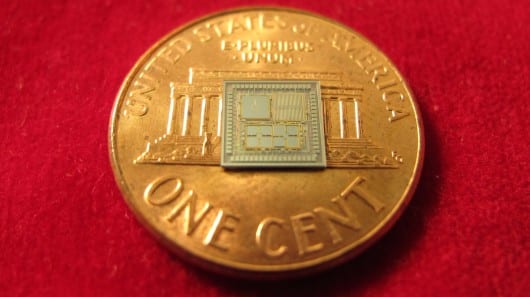The GPS-based navigation system used worldwide has seen a boon in usage in recent years. But the satellite-based navigation system isn’t without its shortcomings – it doesn’t work in indoors or tunnels. This could be a serious problem for military users. Hence, DARPA has made a self-sufficient navigation system that can aid users when GPS is unavailable.
DARPA researchers at the University of Michigan have taken an approach similar to Navatar and Casio’s ECX-H20G camera that rely on a compass, accelerometers and pre-loaded maps. DARPA’s system is called “timing & inertial measurement unit” (TIMU).
The DRAPA website writes, “The single chip TIMU prototype contains a six axis IMU (three gyroscopes and three accelerometers) and integrates a highly-accurate master clock into a single miniature system, smaller than the size of a penny. This chip integrates breakthrough devices (clocks, gyroscopes and accelerometers), materials and designs from DARPA’s Micro-Technology for Positioning, Navigation and Timing (Micro-PNT) program.”
The chip developed by DARPA is microfabricated in six layers, each just 50 microns thick. The thickness is comparable to the thickness of a human hair. The whole package is just 10 cubic millimeters, smaller than a U.S. penny.
“Both the structural layer of the sensors and the integrated package are made of silica,” said Andrei Shkel, DARPA program manager. “The hardness and the high-performance material properties of silica make it the material of choice for integrating all of these devices into a miniature package. The resulting TIMU is small enough and should be robust enough for applications (when GPS is unavailable or limited for a short period of time) such as personnel tracking, handheld navigation, small diameter munitions and small airborne platforms.”
Source: DARPA
[ttjad keyword=”gps-device”]




